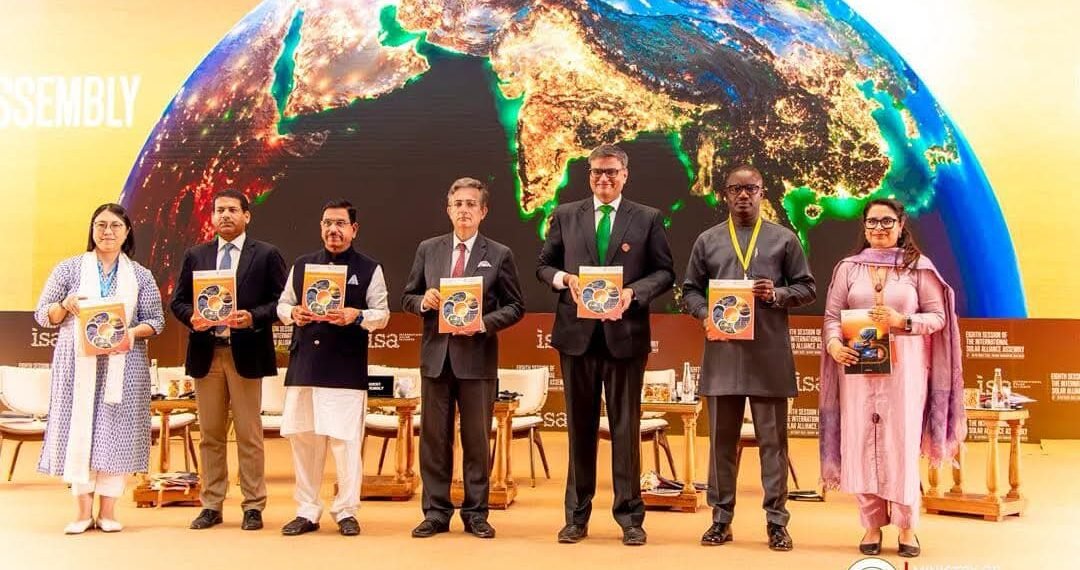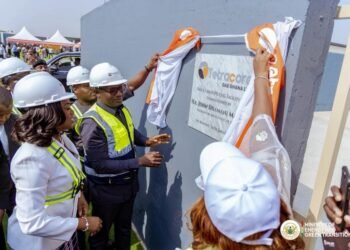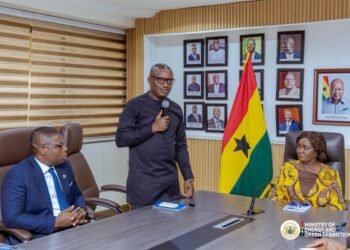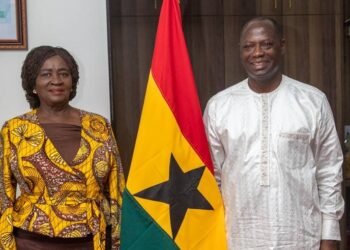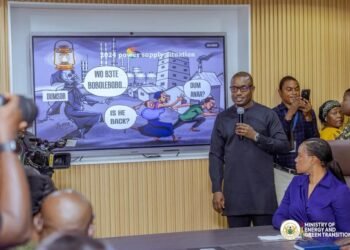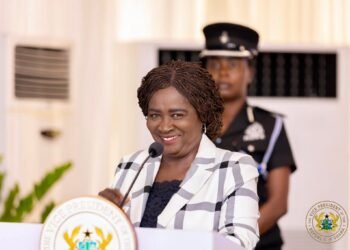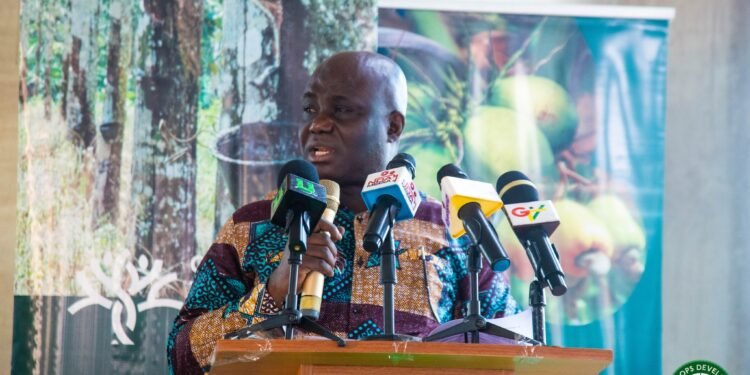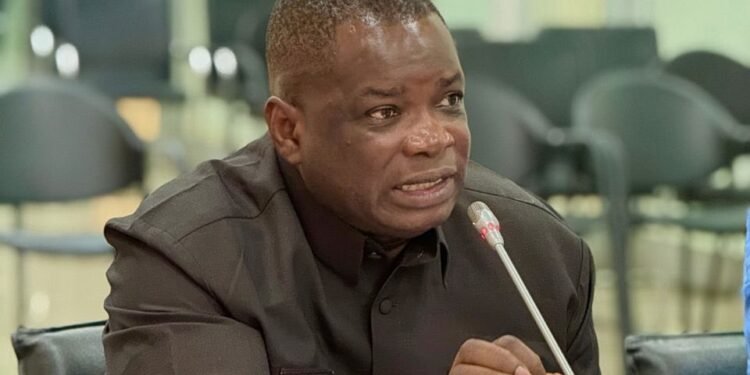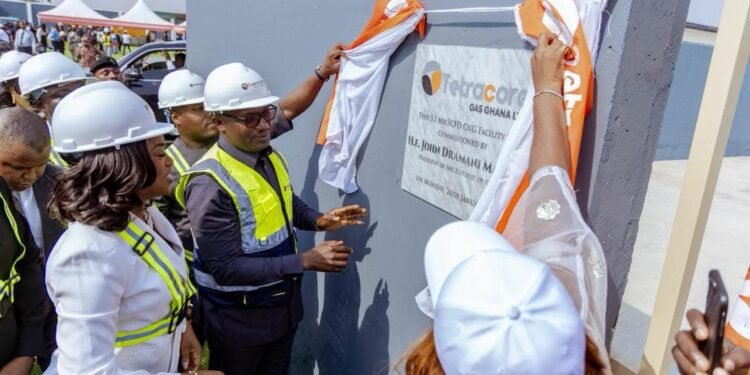The Minister for Energy and Green Transition, Hon. John Abdulai Jinapor, has called for stronger international collaboration, policy consistency, and innovative financing to accelerate solar energy deployment across Africa.
Speaking at the 8th International Solar Alliance (ISA) Assembly, the Minister underscored Ghana’s readiness to champion large-scale solar development and sustainable energy reforms that can transform the continent’s energy landscape.
Addressing delegates during a high-level panel discussion themed “Accelerating Solar Ecosystems Through Counter Partnerships,” Hon. Jinapor said Ghana’s approach to renewable energy goes beyond short-term projects and focuses on long-term structural transformation.
“Our conversation focused on how innovative financing, policy consistency, and strategic partnerships can drive bankable solar investments across Ghana and Africa.”
Hon. John Abdulai Jinapor, Minister for Energy and Green Transition
Building a Predictable Energy Market
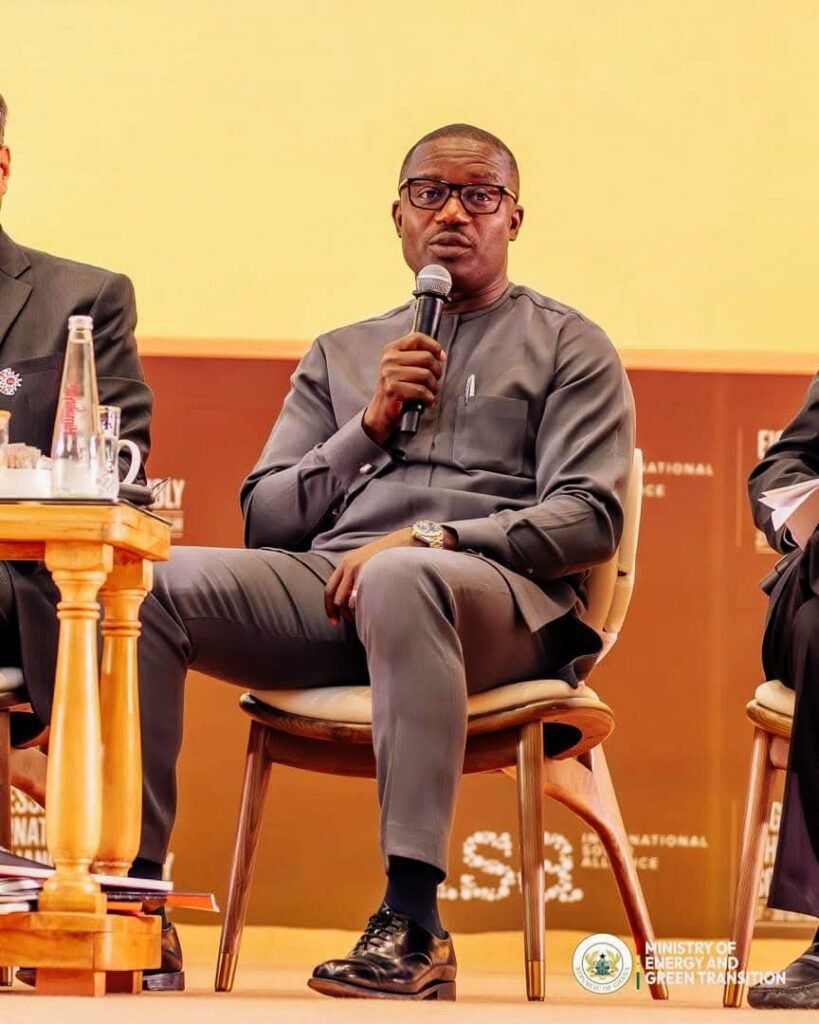
Hon. Jinapor emphasized that for Africa’s renewable energy ambition to succeed, predictable government policies are essential.
He pointed out that private investors are more willing to commit capital when the policy environment is stable, transparent, and fiscally responsible.
“I emphasized the need for macroeconomic stability, predictable policies, and a strong fiscal and regulatory framework to attract sustainable investment.”
Hon. John Abdulai Jinapor, Minister for Energy and Green Transition
The Minister noted that without such stability, renewable energy projects often face delays and financial setbacks.
He explained that governments must not only attract investors but also guarantee project bankability through dependable infrastructure, effective regulation, and sound governance of the power sector.
“Key enablers include land banks for solar, sound PPAs (Power Purchase Agreements), and a reliable distribution sector because when we sell the power produced, we must also ensure the money is recovered through the value chain.”
Hon. John Abdulai Jinapor, Minister for Energy and Green Transition
His comments come at a time when many African countries are grappling with financing challenges and grid inefficiencies that have slowed the rollout of renewable energy projects.
Regional Collaboration for Long-Term Capital
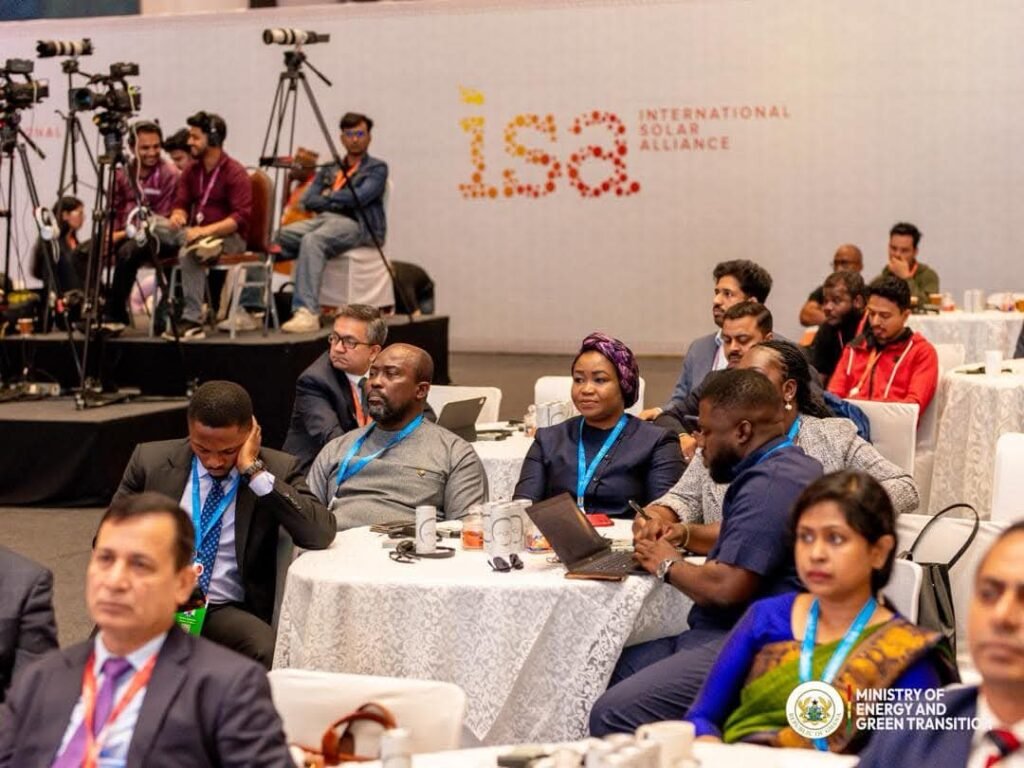
Looking beyond Ghana’s borders, the Minister called for stronger regional cooperation and the mobilization of “patient capital” from multilateral and development finance institutions.
Under the Ghana 2030 Renewable Energy Plan, the country aims to generate 10 percent of its national energy mix from renewable sources, representing an installed capacity of about 1,350 megawatts (MW) of clean energy.
Much of this capacity is expected to come from solar projects spread across rural and urban centers, including mini-grids, utility-scale installations, and solar-powered irrigation systems for agriculture.
Hon. Jinapor said Ghana’s progress in this area is driven by both policy innovation and strong public-private collaboration.
He reiterated that the government’s goal is not only to diversify the energy mix but also to ensure affordable and reliable electricity for industries and households.
“Looking ahead, we must plan our energy mix proactively, strengthen regional collaboration and mobilize patient capital from partners like the AfDB and the Africa Energy Bank.
“Ghana is ready to lead the way in building a resilient, inclusive and sustainable solar future.”
Hon. John Abdulai Jinapor, Minister for Energy and Green Transition
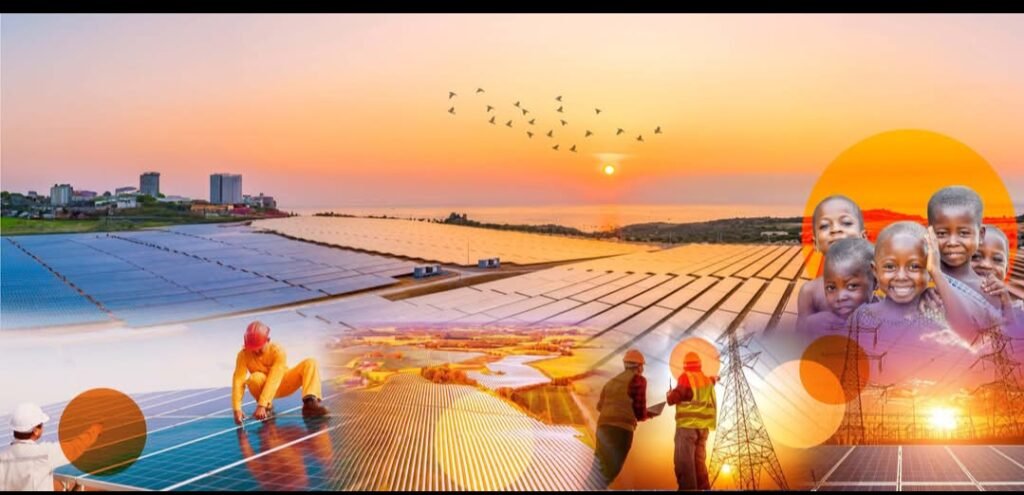
The Minister further noted that Ghana’s leadership role within the International Solar Alliance has been instrumental in shaping policy dialogue across the continent.
Through active participation in global initiatives, Ghana continues to position itself as a model for sustainable energy governance in Africa.
The International Solar Alliance Assembly, attended by ministers, policymakers, financiers, and energy experts from over 100 member countries, serves as a global platform to advance solar power adoption and promote climate-resilient development.
This year’s assembly focused on unlocking finance and improving the regulatory environment for renewable energy in developing economies.
READ ALSO: BoG’s $1.15bn FX Injection Sparks Clash with IMF and World Bank Over Cedi Stabilization

